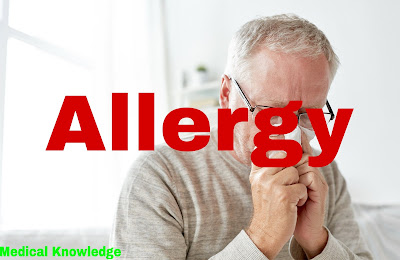Allergies are a common condition that affects millions of people around the world. An allergy is a reaction that occurs when the immune system overreacts to a substance that is normally harmless, such as pollen, certain foods, or pet dander. This overreaction can cause a wide range of symptoms, ranging from mild to severe. In this article, we will discuss the causes, symptoms, and treatment of allergies, as well as some tips for managing allergies.
Causes of Allergies :
Allergies are caused by an overactive immune system. When the body encounters a substance that it considers a threat, such as pollen or pet dander, the immune system produces antibodies to fight it. In people with allergies, the immune system produces an excessive amount of antibodies, which can cause an allergic reaction.
Allergies can develop at any age, although they are more common in children. In some cases, allergies may run in families, and a person is more likely to have an allergy if their parents or siblings have one.
There are different types of allergies, and some of the most common include:
1 - Food allergies: These occur when the immune system reacts to a specific protein in a food. Common food allergens include peanuts, tree nuts, shellfish, milk, eggs, soy, and wheat.
2 - Drug allergies: These occur when the immune system reacts to a medication, either prescribed or over-the-counter. Common drugs that can cause an allergic reaction include antibiotics, aspirin, and nonsteroidal anti-inflammatory drugs (NSAIDs) like ibuprofen.
3 - Seasonal allergies: These occur when the immune system reacts to allergens present in the air during certain times of the year, such as pollen from trees, grasses, and weeds.
4 - Animal allergies: These occur when the immune system reacts to proteins found in the saliva, urine, or dander of animals, such as cats, dogs, and rodents.
5 - Insect allergies: These occur when the immune system reacts to insect bites or stings, such as those from bees, wasps, and mosquitoes.
6 - Contact allergies: These occur when the skin comes into contact with a substance that causes an allergic reaction, such as nickel, latex, or poison ivy.
Symptoms of Allergies :
The symptoms of allergies can vary depending on the type of allergen and the severity of the reaction. Some common symptoms of allergies include:
1 - Sneezing
2 - Runny nose
3 - Itchy eyes, nose, or mouth
4 - Watery eyes
5 - Congestion
6 - Swelling of the face, lips, tongue, or throat
7 - Hives or rash
8 - Difficulty breathing
9 - Anaphylaxis (a severe, life-threatening reaction that requires immediate medical attention)
Treatment of Allergies:
There are several treatment options available for allergies, depending on the severity of the reaction. For mild allergies, over-the-counter medications such as antihistamines or decongestants may be effective in reducing symptoms.
For more severe allergies, prescription medications such as corticosteroids or epinephrine may be necessary. Immunotherapy, also known as allergy shots, can also be an effective treatment option for some people with allergies.
Tips for Managing Allergies :
While allergies cannot be cured, there are several steps you can take to manage your symptoms and reduce your exposure to allergens. Some tips for managing allergies include:
1 - Avoiding allergens: Identify the allergens that trigger your symptoms and take steps to avoid them as much as possible. For example, if you are allergic to pollen, stay indoors on high pollen days or wear a mask when outdoors.
2 - Keeping your home clean: Dust mites and mold can trigger allergies, so it's important to keep your home clean and dry. Use a HEPA filter in your vacuum cleaner and air purifier to remove allergens from the air.
3 - Taking medications as directed: If you have been prescribed medication for your allergies, be sure to take it as directed. Don't stop taking medication without talking to your doctor first.
4 - Seeking medical attention: If you experience severe or life-threatening symptoms, such as difficulty breathing or swelling of the throat, seek medical attention immediately.
Conclusion :
Allergies are a common condition that can cause a wide range of symptoms, ranging from mild to severe. While allergies cannot be cured, there are several treatment options available to manage symptoms and reduce exposure to allergens. By taking steps to avoid allergens and seeking medical attention when necessary, people with allergies can live healthy and productive lives.

